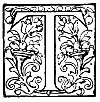Legends and Popular Tales of the Basque People
KURUCIFICATUAREN CANTA
(The Chant of the Crucified.)
BALLAD.
Kurucificatuaren Canta. (The Chant of the Crucified.) During the long and sanguinary war sustained by the Romans against the inhabitants of the Basque mountains, the prisoners who fell into the power of the Romans were crucified on the summit of the mountains with the object of inspiring the dwellers with terror. The heroic Basque people intoned while on the cross a chant of triumph and death, and also insulted their enemies, who witnessed with feelings of awe such manifestations of courage and lofty independence of spirit.
 HE woods of
Odolaga2 are sombre from the abyss of Guesalza issue
dismal sounds, and the Kuruceta3 veils its face with a
thick fog,
HE woods of
Odolaga2 are sombre from the abyss of Guesalza issue
dismal sounds, and the Kuruceta3 veils its face with a
thick fog,
"Why do ye weep, maidens of Izaspi?4 Why pluck your beards, ye ancients of Errazil? What mean these tearful eyes, and this disordered hair?"
No one replied to the stranger: sorrow has no words it is dumb like death. The maidens wipe away their tears; the ancients majestically enwrap their mantles around them, and sit down, deeply moved and silent, upon the broken-down trunks of their oaks. Yet though their sorrow may be immense and deep, the Euscara must not manifest himself weak to the eyes of the stranger. To others belong the loud plaints or the cry wrung from feeble spirits. The tree groans as it breaks down; the strong rock is cleft without hurting itself; the Euscara is like the rock--he dies; but without death being able to wrench from him a single sigh.
Out of the dense fog which is covering Kuruceta issues from its bosom sylvan harmonies and cries of triumph The Basque mountain is stirred to its base, and, shaking its granite front, flings to the winds its diadem of clouds. It is the full moon of May; the queen of night shows her sanguinary face towards Otsondo,5 and with red beams illumines the mysterious heights. Sylvan melodies follow, and the cries of triumph become louder. The torrents stop their course; the winds of the forests become hushed, and timidly retire to take shelter amid the leafy branches. What mysterious sacrifice is about to be celebrated on the Basque mountain? Oh! what shadowy outlines rise up in the horizon! What a long line of lances! Nude bodies pend from upraised crosses; but the brows of the crucified are proudly lifted up; their looks are haughty, and their lips curl with contempt. Cries of triumph are uttered before the terrified Romans; the lips of the crucified are crying thus:
"Salve! moon of May, light of our feasts and of our lives! spread thy beams and encircle our brows with the brilliant crown of triumph and of martyrdom!"
"The Romans desire to see on our faces the contortions of agony; that is proper of cowards, and we are not cowards. These crosses are the thrones of our glory!
"They weep like children on yielding up their spirit we sing the song of death, the hymn of victory!
"Your Augustus Octavius is great, you say; and in truth he is great like yourselves--in pusillanimity and in treachery.
"Salve! May moon, which shines over fresh valleys, rugged mountains, and the shady woods of our land!
"Relate to our sons, to our wives, to our lovers, and to our country, the deeds of Euscara and the cowardice of the Romans who gaze on us.
"Tell them that we fling to the face of the son of the Tiber the blood which gushes from our wounds. Tell them that when our souls fly to heaven, our hearts will still continue to throb for our country!
"Satellites of the tyrant! land of slaves! We despise ye like the bear despises the fox; and on their faces, pale with terror, we hurl our contempt!
"Salve! thou moon of May, look at us well: we smile at pain; our countenances do not grow pale. The love of liberty and of our country still fills our hearts!
"Tell our beloved fathers and our dear brothers what you have seen; and that to the cries of triumph which resound from Kuruceta responds the cry of extermination and vengeance throughout the Basque mountains.
"May moon! light of May! kiss the brows of our children and of our mothers, and carry to our spouses, whom we received before the altar, the last throb of our hearts!
"Oh, May moon! repeat with us the last motto of our spirit, Viva la Patria! Hatred and contempt for idolatrous Rome!"
To this clamour replies another, great and echoing--terrible--a cry which fills the depths of the forests and fills the immensity of space. Then the Basque mountains remain silent; the woods of Odolaga become more sombre, and from the mouth of Guesalza 1 issues still more dismal sounds, and the Kuruceta veils her face with a more dense fog. And the beams from the May moon descends over the valleys, and consoles with its cold light the maidens of Izaspi and the ancients of Errazil.
Footnotes
215:2 Odolaga. A mountain which, forming a cordillera, separates the valleys of Baztan and Ulzama. It is covered with woods.
215:3 Kuruceta. A mountain situated in Guipuzcoa and Navarre, upon which some hundreds of Basque prisoners were crucified during the wars against the Romans.
215:4 Izaspi. An ancient place of Navarre.
216:5 Otsondo. A mountain on the frontiers of France, near the Urdax, in Navarre.
219:1 Guesalza. A cave of great depth and extension, full of crystals. It is situated near the Mondragon, in Guipuzcoa.
Next: The Raids
